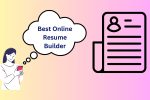Considering a Leap: Should I Leave My Day Job for My Cake Business?
Making the decision to quit a stable job can be a daunting experience, especially when you’re balancing a full-time position with a budding side hustle. I currently work at a bank while managing a home-based cake catering business, which I’ve operated for about 10 months now. Lately, however, the pressure of meeting deadlines and handling multiple responsibilities has become overwhelming, leading to significant anxiety.
In terms of income, I typically earn between $2,300 and $2,700 each month from my cake venture and around $2,800 from my banking job. It’s worth noting that I’ve been diligent about reinvesting the profits from my catering business back into materials and ingredients, which has allowed me to save approximately $12,000. Additionally, my husband works in IT and has a comfortable income, which provides us with a financial cushion.
With this backdrop, I find myself contemplating the idea of leaving my banking position to focus solely on my cake business. The thought of making such a significant change, however, fills me with apprehension. Have others faced a similar crossroads? If you’ve transitioned from a conventional job to pursuing your passion full-time, I’d love to hear your insights. What guidance can you share based on your experiences? Thank you in advance for your support!










2 Comments
Making the decision to leave a stable job to pursue a passion can be both exhilarating and daunting, particularly when you’re already feeling overwhelmed by anxiety and the pressures of juggling multiple responsibilities. Here are some insights and practical advice to consider as you contemplate this significant transition.
Evaluate Your Financial Position
Given that you have accumulated about $12,000 in savings from your cake business, it’s important to assess how long this cushion can sustain you. Since your day job earns you approximately $2,800 monthly, it would be wise to analyze your living expenses and how long your savings can cover them if you decide to transition full time into your cake business. Ideally, financial advisors often recommend having at least three to six months’ worth of living expenses saved up before leaving a job, so ensure your savings align with this guideline.
Set Clear Goals and Expectations
Define clear objectives for your cake business. What do you want to achieve in terms of revenue, customer base, and product offerings? Create a business plan that outlines your goals for the next 6 to 12 months. This plan should include strategies for increasing sales and possibly expanding your marketing efforts. Having a clear vision can lessen anxiety by providing a structured path.
Create a Transition Plan
Rather than an abrupt departure, consider a gradual transition. If your workload becomes overwhelming, consider reducing your hours at the bank first. For example, negotiate a part-time schedule that allows you to focus more on your cake business while still providing some income and benefits from your current job. This phased approach can help you gain confidence and adaptability before jumping in full-time.
Establish a Client Base and Marketing Strategy
Spend the time leading up to your decision to build your clientele. Increase your marketing efforts—utilize social media, word-of-mouth, or local events to showcase your cakes. Depending on your market, consider collaborating with local businesses, such as coffee shops or event planners, to reach a wider audience. A solid client base can provide peace of mind when you finally decide to leave your day job.
Seek Support
Engaging with a network of fellow entrepreneurs can be incredibly beneficial. Consider joining local business groups or online platforms where small business owners share experiences, advice, and support. Additionally, you might find mentorship from someone who has made a similar leap invaluable. Their input can help you refine your strategies and may ease your concerns about going solo.
Managing Anxiety and Stress
It’s crucial to address the anxiety you’re feeling. Practice mindfulness techniques—such as meditation or yoga—that can help you manage stress levels. Additionally, consider speaking to a therapist or counselor who can help you develop coping strategies for the pressures of entrepreneurship. It’s better to confront these feelings instead of allowing them to weigh you down as you make this transition.
Stay Flexible
Finally, remember that entrepreneurship is a journey—one that often requires adaptability and resilience. Be prepared for setbacks and stay open to adjusting your plans. If your business doesn’t meet your full expectations right away or if you face challenges, it’s important to assess your options pragmatically without feeling defeated.
Conclusion
Ultimately, the decision to quit your day job is a personal one that should be made after careful analysis of your financial situation, business viability, and personal comfort with risk. Combining preparation with action can empower you to take this leap with more confidence. You’re not just chasing a dream; you’re also building a future—one that, with thoughtful planning, can be both fulfilling and financially sustainable. Good luck on your entrepreneurial journey!
What an exciting yet challenging decision you’re facing! It sounds like you’ve built a solid foundation for your cake business, especially with those impressive savings from reinvesting your profits. Here are a few thoughts to consider as you navigate this pivotal moment:
1. **Assess Your Business Potential**: Dive deeper into your financials and projections for your cake business. Consider factors like peak seasons, potential growth, and how scalable your business model is. Are there opportunities for expansion, such as catering larger events or teaching classes? Having a clear vision of where you want your business to go can bolster your confidence in making the leap.
2. **Create a Buffer**: While your savings of $12,000 is a great safety net, consider how long this would sustain you without income and factor in potential fluctuations in cake sales. Setting a financial target that exceeds your basic expenses for a few months can help mitigate stress as you transition.
3. **Test the Waters**: If you’re feeling uncertain, perhaps consider reducing your hours at the bank or starting with a sabbatical. This approach could grant you more time to focus on your cake business without fully letting go of your secure income, giving you the chance to evaluate your business’s performance under less pressure.
4. **Seek Community and Mentorship**: Reaching out to others who have made similar transitions can be so beneficial. Join local entrepreneur groups or online forums where you can ask questions, share experiences, and learn from those who’ve walked this path before